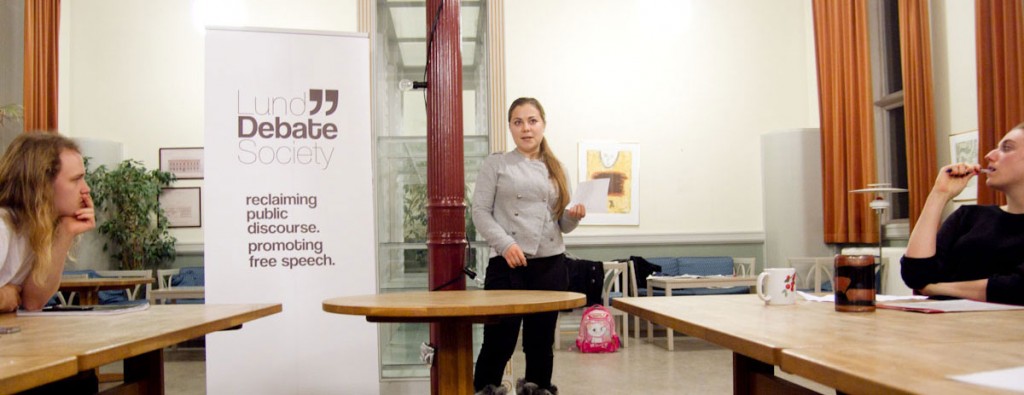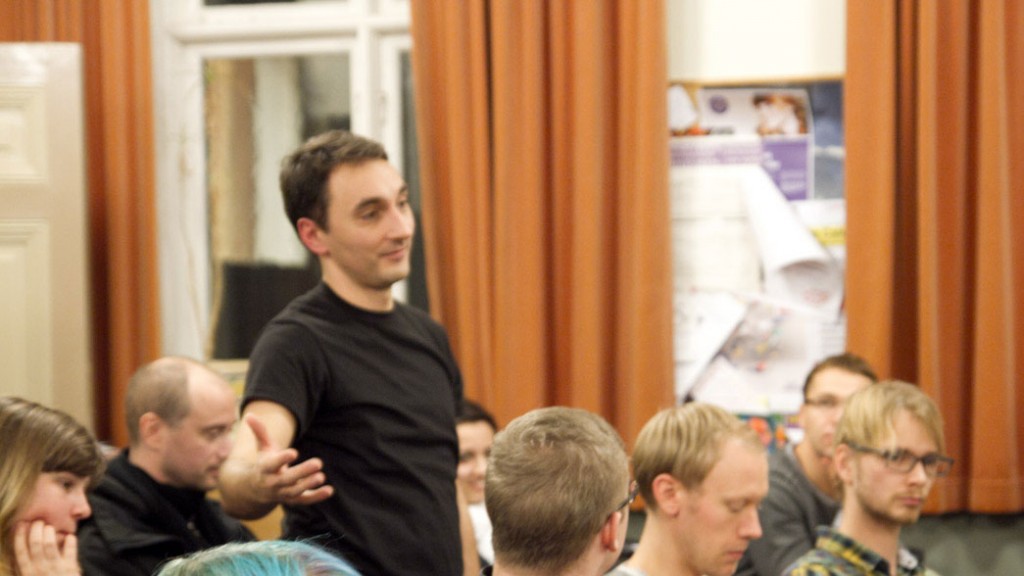“The great university towns of the world have a history of great debate societies. It should be part of the tradition of the place and that is what we hope to achieve,” says Lucinda David, coach of the Lund Debate Society as she prepares the final practice before this weekend’s competition that will see teams from across Europe argue on some of today’s most pressing topics.
British Parliamentary debating is practiced across the world in high schools and universities. It pits four teams, divided into the government and opposition, against each other as they seek to convince judges that the motion of the debate should either pass or be defeated.
“It is all about bringing the academic skills developed at the university to bare on real world issues and encouraging people to develop their capacity to argue a point that they may not necessarily agree with and think on their feet,” explains Lucinda.
“Here in Lund we are actually Sweden’s biggest debate society and are continuing to grow at a really fast pace,” says Emilia Carlqvist, president of the Lund Debate Society.
“It is a unique place in Lund,” she continues, “You usually find that the Swedish and international students rarely mix. But this society promotes integration and inclusiveness: forming teams and grappling with issues important to the community as a whole, not just Swedes or non-Swedes.”

“A lot of Swedes are hesitant when they first come, it’s not normal here to be so confrontational.” Says Lucinda, before adding: “But we run two debates: one is a beginner level that people can use as a spring board to develop their skills.
The Search for Funding
Yet despite the potential academic merits and reputational enhancement that a successful debate society can bring to the university, gather sufficient funding represents a considerable hurdle to its sustained growth.
“We are hoping to go abroad soon, there is a competition coming up in Paris that would be good to attend. But in terms of things like travel our biggest problem is funding. AF (Akademiska föreningen) and Folkuniversitet have been fantastic and have really reached out to us and supported our development, but anything beyond this has been a struggle,” says Emilia.
“It is almost slightly unfair. For example, the established sports teams get a lot of money but since debating isn’t as ingrained a part of Swedish society it has been hard to gain the support and publicity necessary to grow the society easily,” adds Lucinda.
The Lund Debate Challenge
With this need to raise the profile and experience of the Debate Society it was decided to organise a debate tournament here in Lund this weekend.
“The competition is all about providing the Lund debaters with the chance to put their practice and skills to use in a competitive environment while at the same time putting our name out and getting better known in the debating circuit.”
“The whole weekend will hopefully bring us more into line with the debate culture in the rest of Europe, give our debaters experience and let us grow and improve even more,” continues Lucinda.

Teams are coming from across Europe with the UK, Norway, France and Germany are all set to be represented while great efforts have also been made to include a social side to the event with a sittning organised to bring the competitors together afterwards:
“We are not just an intellectual society. A big part of our goal is to make sure our members have fun as well – so we are not as pretentious as many outsiders might assume,” concludes Emilia.





